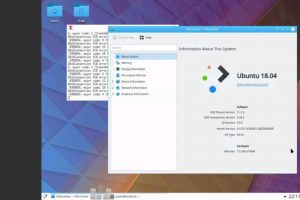What is the best way to kick off a new website dedicated to all things open source? Normally, that would be an article answer the question “why open source”. But this is 2018 and that question is almost irrelevant. Instead, the question is almost “why not?”. Because in the grand scheme of things, it makes more sense today to write or even just use open source software. It is everywhere, unavoidable, and turning the gears that make our tech world run. Because, as my boss half-joked, “if it isn’t open source, it’s no good.”
Changing times
We’ll leave out the history of open source to the countless documentaries written and even filmed about it. We’ll leave out the debates around Free Software versus Open Source Software, Linux versus GNU/Linux, GPL versus LGPL, and more. Those discussions still occur within the ranks but as far as the bigger battles are concerned, we’ve already won.

Open source advocates are no longer seen as hippies or rebels sticking it to the man comprised of giant corporations that write the world’s most popular software. In fact, some of the biggest proponents and allies of open source come from those corporations. Just like how the world has changed its perception of programming from a “nerdy thing” to “everyone can code”, the attitude towards open source has become more welcoming if not at least more tolerant. And it’s not like people have much choice because open source practically runs our modern world.
FOSS makes the world go round
Back in the days, when proponents wanted to prove how open source dominated the tech industry behind the scenes, they’d cite how software like the LAMP (Linux, Apache, MySQL, PHP) ran behind majority of the world’s websites and servers. That remains true today, perhaps even more so, but open source software is no longer just behind the scenes. They are front, center, and even in your pockets.
Android is the world’s largest mobile platform and, in addition to being built on the open source Linux kernel, its core is also open source. There are definitely proprietary bits coming from Google and apps, but its open source lineage can’t be denied nor easily removed. Even if you were to argue that iOS is better and bigger, it too, just like macOS, owes its existence to open source software.
In fact, it’s nearly impossible these days not to come across open source software, even in places you’d least expect. From compression libraries like zlib to source code management tools like Git, everyone everywhere uses is touched by open source software, whether they know it or not. And the companies that once reviled, derided, or discredited open source have mostly given up and embraced it instead.
Old enemies, new friends
Steve Ballmer earned notoriety in free and open source software circles for comparing open source, specifically Linux, as a cancer. His successor, Satya Nadella, made a U-turn and promoted an image of a Microsoft that “hearts” Linux and open source. Some aren’t buying it but it represents a shift in attitude towards open source as something “the man” can no longer ridicule or ignore.
GitHub, which Microsoft recently purchased, is home to over 50 million repositories, all of them containing source code for almost everyone to see. True, not all of those are under license accepted by the Open Source Initiative, much less the Free Software Foundation. True, some of them are private to only a few people. But the sheer number of people, projects, and companies willing to have others see their code is already a huge shift from the days when such was considered a sin. Even Epic Games has put up the source code for (an older version of) Unreal Engine for people to see and learn from.
And it isn’t just Microsoft either. No company is perfect or sinless but Google, Facebook, and Twitter have all contributed to the open source community, directly or indirectly, with tools, frameworks, hackathons, and the like. Their compliance may not be perfect, but equipment manufacturers are becoming more aware of what is required of them by the open software they use to make their own lives easier. Because without open source, almost everyone will have to start from scratch, live in their own silos, and never get anything done.
The never-ending story
So open source has won. We can now put up our feet, sit back, relax, and enjoy the fruits of our labors, right? Hardly. It’s a never-ending war, sadly, and we can never really rest on our laurels for long. Microsoft may have changed its tune, but its patent trolls still wage war against smaller open source entities.
The old “security through obscurity” mentality has resurfaced recently in light of some high-profile security exploits affecting opens source software. And there will never be a lack of people and companies operating under a misunderstanding of open source software or, worse, taking advantage of whatever legal loophole they might find. And we’re still waiting for the Year of the Linux Desktop to finally happen.
No, the open source story is far from over. From Linus’ sabbatical from kernel development to the rise of open hardware and alternative open mobile platforms to Oracle’s still ongoing crusade to profit from Android’s success, the open source world is very much still growing, still changing, and definitely still exciting.
So join us here at The Open Source Journal as we help you navigate through the world of open source apps, hardware, news, tutorials, and everything in between. Because if it’s open source, it’s definitely worth knowing.






